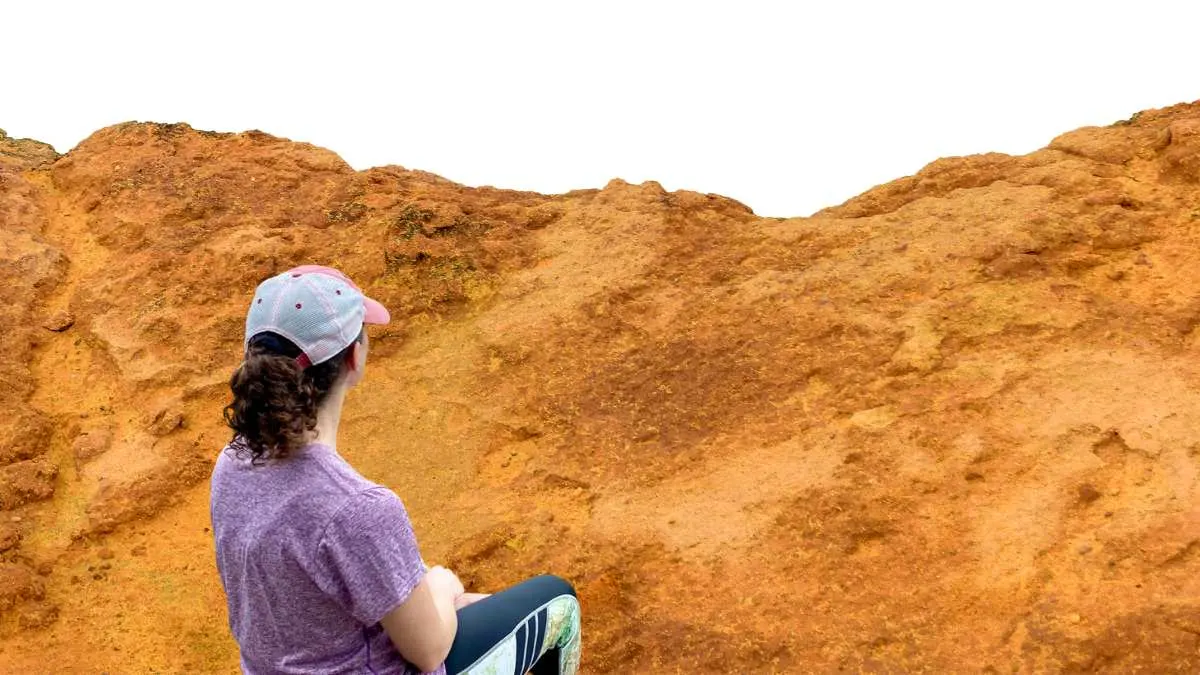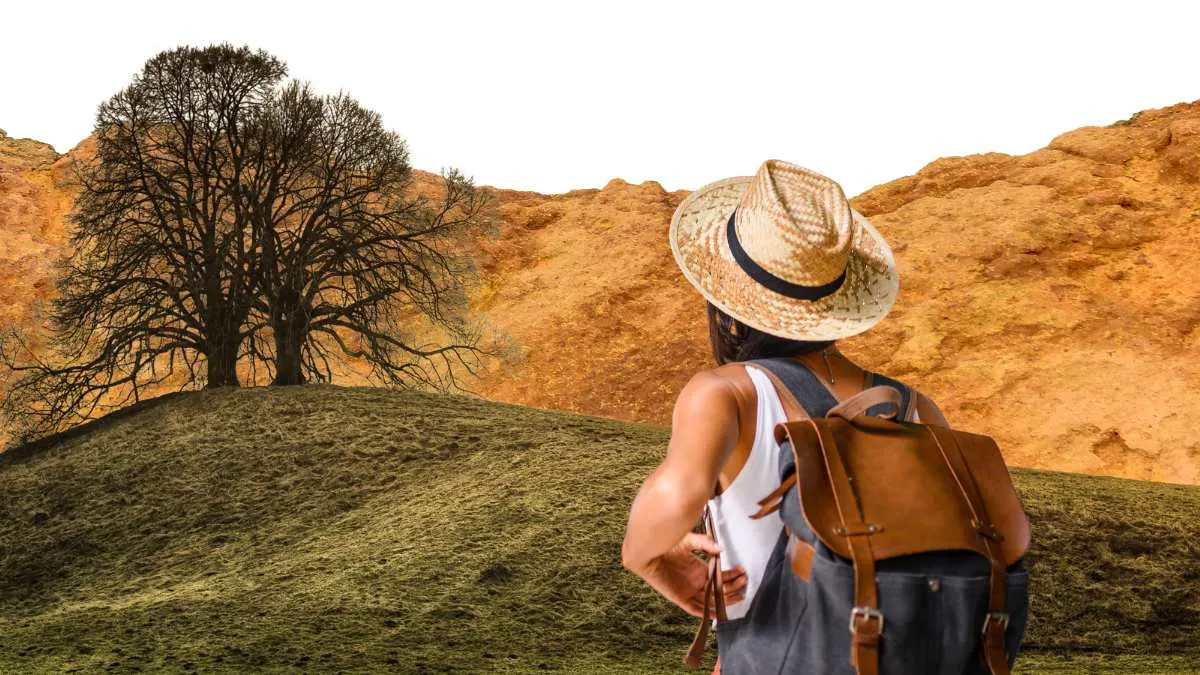Traveling solo is one of the most enriching experiences a person can have. It offers the opportunity for self-discovery, personal growth, and the freedom to explore the world at your own pace.
Whether you’re wandering through cobblestone streets in Europe, hiking through the jungles of Southeast Asia, or discovering hidden gems in your own city, solo travel is an adventure like no other.
However, while the benefits are immense, it’s important to keep safety in mind when embarking on your journey.
Safety should always be a priority, especially when traveling alone. As a solo traveler, you may face challenges that are different from those experienced by people traveling with companions. However, with the right precautions and some smart strategies, you can ensure your travels are safe and enjoyable.
Find Solo Travel Safety Tips, to help you have a secure and smooth trip. Whether you’re new to solo travel or an experienced adventurer, these tips will help you feel confident and prepared wherever you go.
7 Solo Travel Safety Tips:
1. Plan Ahead, But Stay Flexible
The first step to staying safe while traveling solo is to plan ahead. Knowing the basics of your destination—such as local customs, emergency numbers, and potential areas to avoid—can help you make informed decisions and prevent unnecessary risks. Here are a few things to consider before you embark on your journey:
-
Research Your Destination: Understand the political situation, local laws, and general safety of the destination. Read travel forums, blogs, and government advisories to stay updated on any safety concerns.
-
Secure Your Accommodation: Always book your first night’s accommodation in advance and ensure it’s in a safe, well-reviewed location. It’s wise to choose places with good security, close to transportation, and in areas with low crime rates.
-
Know Local Emergency Numbers: Make sure you have the local emergency contact numbers saved on your phone. For example, the emergency number for police in Europe is 112, while in the U.S. it’s 911.
-
Have a Flexible Plan: While it’s important to plan, leave room for spontaneity. Having a rigid schedule can make you more vulnerable to unanticipated issues. Flexibility allows you to adapt to changes and enjoy the freedom of solo exploration.
2. Stay Connected with Loved Ones
One of the most important safety tips for solo travelers is to stay connected. Share your itinerary and regular updates with someone you trust back home. This way, if something goes wrong or you miss a check-in, someone will be aware of your location and plans.
-
Share Your Itinerary: Before you leave, send a copy of your flight details, hotel reservations, and planned activities to a family member or friend. Regularly update them on your whereabouts and activities during your trip.
-
Use Tracking Apps: Consider using tracking apps like Find My Friends or Google Maps location sharing, which allows trusted people to monitor your movements in real time. Always make sure your phone is charged and easily accessible.
-
Emergency Contacts: Save emergency contacts on your phone, including local embassies, local friends or acquaintances, and any travel agencies or tour groups you may be using.
3. Trust Your Instincts and Stay Alert
When traveling solo, it’s crucial to trust your instincts and stay alert. If a situation doesn’t feel right or if you’re in an unfamiliar area, it’s important to listen to your gut and remove yourself from the situation.
-
Stay Aware of Your Surroundings: Avoid distractions, such as constantly looking at your phone, when you’re walking through unfamiliar streets. Stay aware of your surroundings, especially in crowded places like markets, train stations, or tourist attractions.
-
Avoid Risky Situations: If something feels off, don’t hesitate to leave. Trust your instincts—whether it’s avoiding a dark alley, not getting into a cab with a driver you don’t feel comfortable with, or leaving an area where you sense tension.
-
Walk with Confidence: Even if you’re feeling uncertain, walking with confidence can help deter potential threats. Keep your head up, walk purposefully, and avoid looking lost.
4. Use Technology Wisely
In the modern world, technology can be a solo traveler’s best friend. It can help you stay connected, navigate unfamiliar cities, and even keep your belongings secure.
-
Offline Maps: Download offline maps, such as Google Maps, Maps.me, or Citymapper, so you can navigate even when you don’t have access to the internet. Knowing where you are at all times is crucial, especially in unfamiliar locations.
-
Travel Safety Apps: Use apps like Smart Traveler (for U.S. citizens), which provides travel advisories, embassy information, and safety tips. TravelSafe is another app that provides emergency numbers for each country, including police, fire, and medical emergencies.
-
Portable Charger: Always carry a portable charger with you to keep your phone charged while you’re out exploring. This ensures that you can always stay connected and access maps or emergency contacts when needed.
5. Stay Secure with Your Belongings
One of the biggest concerns for solo travelers is keeping their valuables secure. Theft and loss of belongings are not only inconvenient but can also put a damper on your trip. Taking a few simple precautions can help protect your personal items.
-
Use Anti-Theft Gear: Invest in anti-theft bags and backpacks that feature locking zippers, RFID protection, and cut-proof straps. Brands like Pacsafe and Travelon offer travel backpacks and purses designed specifically to deter thieves.
-
Don’t Carry All Your Money: Avoid carrying large sums of money or all your credit cards in one place. Instead, use a money belt or neck pouch to keep your valuables safe and split up your money in different locations (e.g., one in your backpack, one in your hotel safe, etc.).
-
Lock Your Luggage: If you’re checking in luggage or leaving it unattended in your hotel room, make sure to lock it. Consider using a TSA-approved lock for extra security.
6. Blend In and Avoid Drawing Attention
While it’s tempting to wear flashy clothes or accessories as a tourist, blending in with the local culture can help you avoid unwanted attention.
-
Dress Like a Local: Research the local dress code and try to blend in as much as possible. Wearing culturally appropriate clothing can help you avoid standing out as a tourist and make you less of a target for scammers or pickpockets.
-
Keep a Low Profile: Avoid displaying expensive items like jewelry, cameras, or electronics in public. If you need to take photos, do so discreetly and avoid standing out in busy areas.
-
Avoid Excessive Drinking: When traveling alone, it’s important to remain in control of your senses. Avoid drinking too much alcohol, especially in unfamiliar places or when meeting new people. This helps you stay alert and avoid potential risks.
Read Next: What Is Travel Zoo?
7. Know the Local Customs and Laws
Understanding the local culture and laws is essential for a safe and respectful trip. Different countries have varying customs, rules, and expectations, and being aware of these can help you avoid unintentional violations.
-
Research Local Laws: For example, some countries have strict laws about alcohol consumption, drug use, or dress codes. Make sure you’re aware of any local regulations that could affect your safety.
-
Respect Local Traditions: Learn about the cultural norms and traditions of the place you’re visiting. Understanding customs, such as tipping, greetings, and appropriate behavior, can help you avoid misunderstandings and gain the respect of locals.
FAQs | Solo Travel Safety Tips:
1. Is solo travel safe?
Yes, solo travel is generally safe if you take the necessary precautions. Many people travel solo without encountering any problems. It’s important to stay aware of your surroundings, trust your instincts, and plan ahead.
2. How can I protect my belongings while traveling solo?
Use anti-theft gear, lock your luggage, keep valuables in a money belt, and split your money across different places. It’s also wise to avoid carrying everything in one bag and to use hotel safes when possible.
3. What should I do if I feel unsafe while traveling?
If you feel unsafe, trust your instincts and remove yourself from the situation immediately. Look for a public place like a café, shop, or restaurant, and call someone to inform them of your location. If necessary, contact local authorities for help.
4. How do I stay connected with family or friends while traveling solo?
Share your itinerary with someone you trust and check in regularly. Use apps like Google Maps to share your location and keep in touch via messaging or video calls.
5. Should I avoid certain destinations as a solo traveler?
While most destinations are safe for solo travelers, it’s important to research your destination. Avoid areas with high crime rates or political instability, especially if you’re unfamiliar with the region.
Ready to Start Your Solo Adventure?
Solo travel can be a life-changing experience that opens doors to self-discovery and new horizons. By taking the necessary precautions and following these safety tips, you can ensure a safe, enjoyable, and unforgettable journey.
Whether you’re planning your first solo adventure or are a seasoned traveler, stay prepared, stay connected, and most importantly, trust your instincts. The world is waiting for you—get out there and explore it!
Ready to start your solo travel adventure? Check out our travel guides and resources for more tips, destination recommendations, and booking deals. Contact us today to begin planning your next solo journey! Safe travels!


